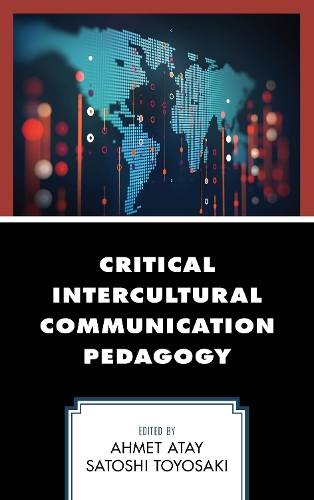
Critical Intercultural Communication Pedagogy
(Hardback)
Publishing Details
Critical Intercultural Communication Pedagogy
By (Author) Ahmet Atay
Edited by Satoshi Toyosaki
Contributions by Bernadette Marie Calafell
Contributions by Sharon Chuang
Contributions by Leda Cooks
Contributions by Linsay Cramer
Contributions by Tina Harris
Contributions by Alberto Gonzlez
Contributions by Robert Gutierrez-Perez
Contributions by Rona Tamiko Halualani
Bloomsbury Publishing PLC
Lexington Books
20th December 2017
United States
Classifications
Professional and Scholarly
Non Fiction
Higher education, tertiary education
303.482
Physical Properties
Hardback
280
Width 162mm, Height 239mm, Spine 26mm
594g
Description
Critical Intercultural Communication Pedagogy constructs a theoretical frame through which critical intercultural communication pedagogy can be dreamed, envisioned, and realized as praxis. Its chapters provide answers to questions surrounding the relationship of intercultural communication pedagogy to critical race theory, queer theory, critical ethnography, and narrative methodology, among others. Utilizing a diverse array of theoretical and methodological approaches within critical intercultural communication research, this collection is creatively engaging, theoretically innovating, and pedagogically encouraging.
Reviews
This is a rich and essential collection of essays by leading scholar-educators of critical intercultural communication. Rooted in lived experiences across identities and standpoints, it incorporates powerful narrative autoethnography, performance, embodied practice, critical love, and other approaches within a variety of contexts. It addresses practical, ethical, and emotional elements of teaching, and offers deep and valuable insights for seasoned and novice critical educators who strive to decolonize our teaching through dialogue and self-reflexivity. Merging insights of intercultural communication scholarship with those of critical pedagogy, the book constitutes an important contribution to the turn toward social justice within communication studies. -- Sara DeTurk, University of Texas at San Antonio
Critical Intercultural Communication Pedagogy is a powerful and resonant collection of insights into the nuances of culture, power, and pedagogy. Because the authors open dialogic explorations into teaching, learning, and embodying feminist, mediated, postcolonial, queer, and other critical theories, these writings will be of great interest and value to communication scholars in/of/beyond the classroom. Atay and Toyosaki have assembled established scholars who are committed to modeling reflexivity in illuminating and interrogating structures of power and privilege that affect us all. These readings command us to compassionately and critically investigate our own roles in naming, perpetuating, and challenging these structures in our classrooms and in our scholarship; its value to the discipline is considerable. -- Deanna L. Fassett, San Jos State University
Author Bio
Ahmet Atay is associate professor of communication at the College of Wooster. Satoshi Toyosaki is associate professor of communication studies at Southern Illinois University.
